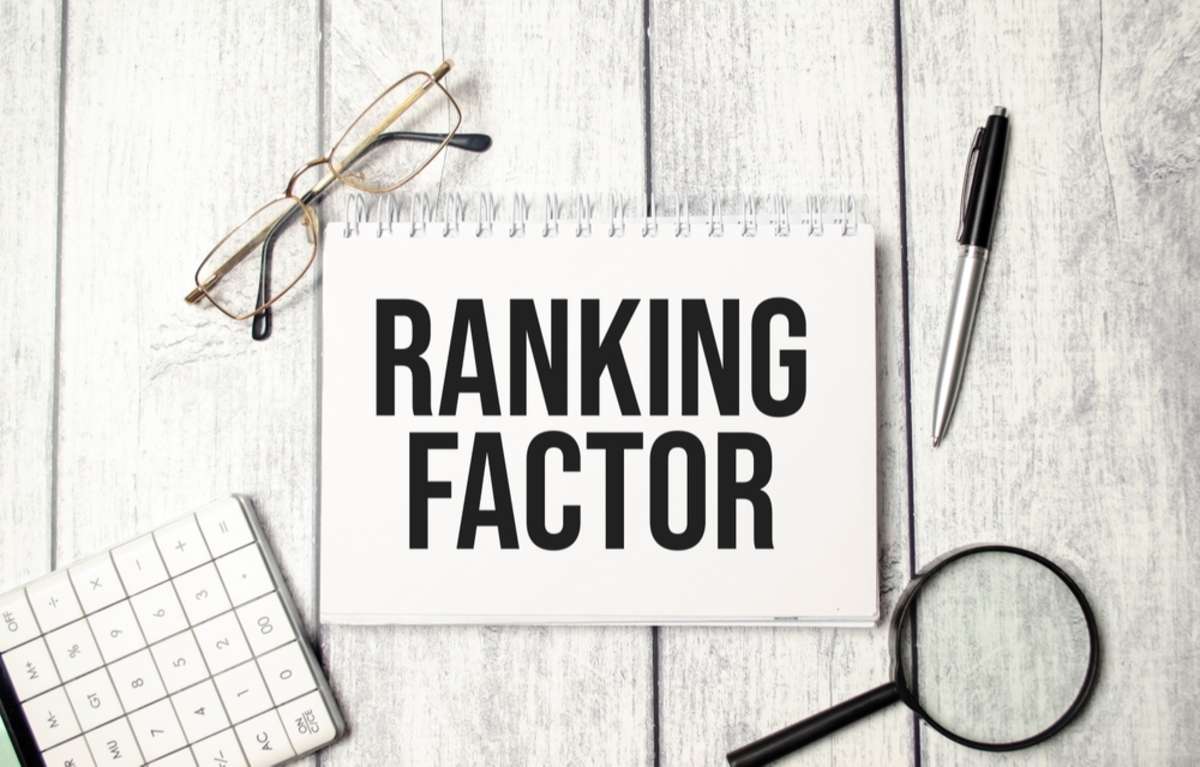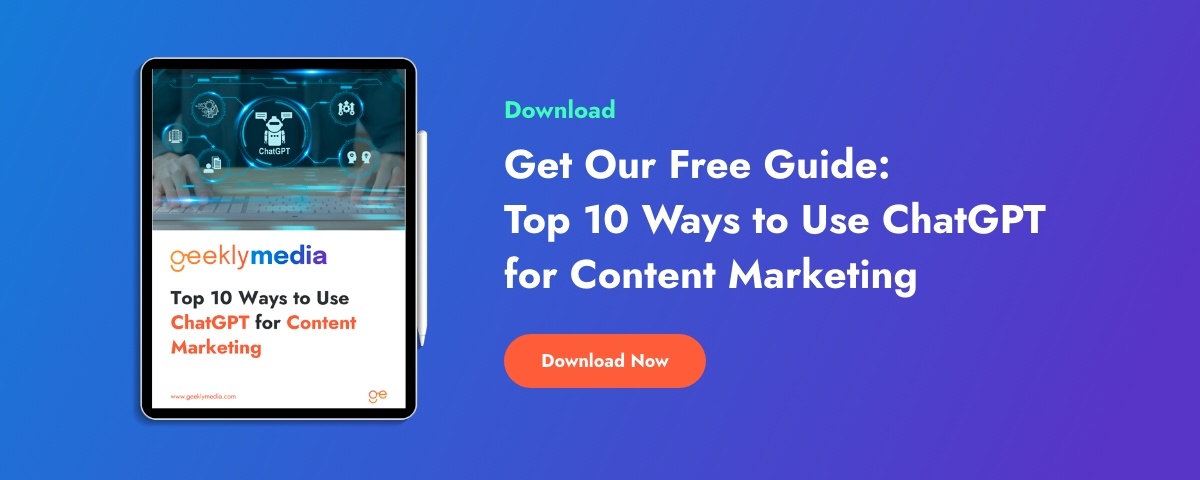
If ChatGPT Wrote My Website, Will Google Penalize My AI-Generated Content?
Listen to the article
If ChatGPT Wrote My Website, Will Google Penalize My AI-Generated Content?
You've probably read or heard the ongoing debate surrounding the ability of AI-generated content to rank on search engines like Google. While some argue that search engines cannot differentiate between AI (artificial intelligence) content and human-generated content, it's important to delve into the nuances of this argument.
Today the Geekly Media content marketing experts talk through the concept of ChatGPT, whether your website will rank if ChatGPT wrote it, and examine the SEO ranking factors that Google considers for content.
What is ChatGPT?
ChatGPT is an advanced language model developed by OpenAI based on the GPT-3.5 architecture. It utilizes artificial intelligence to generate text and engage in conversational interactions.
ChatGPT has been trained on a vast corpus of data from the internet, allowing it to understand and generate human-like text responses.
Will My Website Rank if ChatGPT Wrote It?
Rather than asking whether your website will rank if ChatGPT wrote it, it's essential to reframe the question. The more pertinent query is whether your content will rank based on "how" and "why" it was created.
Google's Expectations for Website Content
No matter who or what creates content for your website, the quality of the content and the rationale behind it matters most. 
When crawling website content, Google looks for specific elements that contribute to the overall quality and relevance of the content. The concept of "E-A-T" (Expertise, Authoritativeness, Trustworthiness) plays a crucial role in Google's evaluation process.
Recently, Google has provided additional guidance emphasizing the importance of creating helpful, reliable, people-first content.
The "Who"
Google places significance on knowing who created the content. It's essential to provide a clear indication of the author's identity, whether it's through a byline or background information about the author.
However, if you used ChatGPT to write the content, this doesn't mean you have to credit the AI tool as the writer. Instead, make sure every blog has an author. Whether it's you, your company, your CEO, or the lead broker of your real estate brokerage, all blogs should come from "someone" — even if the content is generated by AI.
The "How"
Google encourages transparency regarding the method used to create the content. If automation or AI, such as ChatGPT, was involved in the content production process, disclosing this information to readers is helpful.
However, this doesn't mean it's okay to use only AI tools and not apply human edits to your content. Remember that relying too heavily on tools like ChatGPT to write all of your content can trigger search engines to suppress your content when all of your text sounds and looks the same.
The "Why"
The purpose of creating content should be to provide value and assistance to users rather than solely aiming to manipulate search rankings. Google values content that genuinely helps people and fulfills their informational needs.
By evaluating your content through these "Who, How, and Why" lenses, irrespective of whether it was AI-generated or not, you can align your content creation strategy with what Google's systems reward.
Don't Forget The Importance of Human Input
While ChatGPT can assist in generating content quickly, relying solely on its output without human touches and optimization may not yield the best results in terms of ranking and driving traffic.
AI-generated content can lack emotional intelligence and human nuances that resonate with readers. Therefore, it's crucial to have human input to refine and enhance the content before publishing it.
The Role of AI-Generated Content in SEO
AI-generated content can be a valuable tool in your SEO strategy, provided it is used correctly and in conjunction with human expertise. It can help generate a large volume of content quickly, allowing you to target a wider range of keywords and topics.
However, it is important to remember that search engine rankings are not solely determined by content creation. Other SEO factors, such as website structure, backlinks, user experience, and overall optimization, also play significant roles in determining rankings.
Potential Risks of AI-Generated Content
While AI-generated content has benefits, there are potential risks associated with relying solely on AI for content creation. One concern is the lack of originality and uniqueness in the content. 
AI models like ChatGPT generate text based on patterns and examples from existing data. As a result, there is a possibility of producing content that is similar to what already exists on the web, which may not fare well in terms of search engine rankings.
Another risk is the potential for AI-generated content to be viewed as low-quality or spammy. If the content lacks coherence, relevance, or accuracy, it can negatively impact user experience and lead to a decline in rankings. Ensuring that AI-generated content is thoroughly reviewed, edited, and optimized before publishing is crucial.
The Importance of Content Optimization
Regardless of whether your content is AI-generated or human-written, optimization plays a crucial role in maximizing its potential to rank. This includes conducting keyword research, incorporating relevant keywords naturally into your content, and optimizing meta tags and headings.
Additionally, ensuring that your content is well-structured, easy to read, and provides value to your audience will help increase its chances of ranking higher in search results.
Does Google Penalize AI-Generated Content? Not With E-A-T In Mind!
While the debate about AI-generated content's ability to rank continues, it is clear that a holistic approach is essential for SEO success. ChatGPT and other AI tools can be valuable assets in content creation, but they should be used in conjunction with human expertise and optimization.
Transparency, relevance, and a focus on creating valuable content that serves the needs of your audience should be the primary objectives. By considering the "Who, How, and Why" of your content creation process, aligning with Google's guidelines, and optimizing your content for SEO, you can enhance your website's chances of ranking higher and driving organic traffic.
If you're not sure how to generate content and optimize SEO ranking factors for more traffic, Geekly Media can help! Reach out to our team to learn more.
We'll tell you the best ways to use ChatGPT in our free guide, "Top 10 Ways to Use ChatGPT for Content Marketing!"




-1.png)